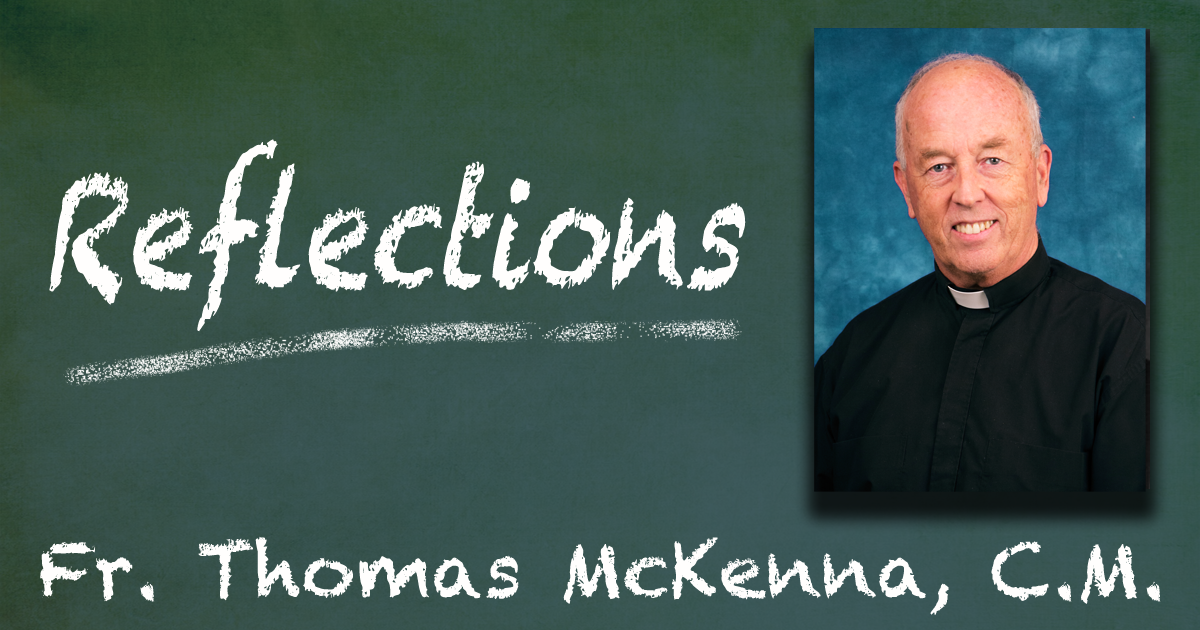“On Listening” (Luke 11: 16, 29-31)
One of the most gratifying compliments is to hear that you listen well. It conveys another’s feeling that something of his or her inner self has gotten through, that not just the words but the deeper resonances of those words have registered. Shallow listening habits are many and include such things as claiming the other’s experience (“That happened to me too and I know all about it”), not tuning into the feeling under the person’s voice, concluding that you’ve heard it all before, being mentally elsewhere, and so on. Fuller listening takes practice, discipline, openness, and a willingness to drop preconceptions.

In Luke’s gospel especially, Jesus praises listening and is critical of its opposite. The Pharisees have been after him for a “sign,” some clear-as-day revelation of God’s power. And Jesus goes back at them for their tone-deafness to the sounds of God ringing through their ears right then and there. He cites Jonah whose preaching in the streets of Nineveh caught the hearts of the hard-hearted citizens of that town. He brings up this foreigner Queen who when she walked into Solomon’s court dropped her certainties and let herself be moved by the graciousness of his wisdom. But now this God-filled person in their midst, Jesus himself, speaks God’s Word directly to them — and it bounces off. How is it that people so close up to the human presence of God can miss the force of his words and actions?
It’s a question for anyone who would follow close behind the Lord Jesus. What preoccupations deaden our hearing to the words he speaks — and The Word he is?
There’s what we might call over-familiarity. Because we’ve heard these gospel stories countless times over, it’s a temptation to think there’s little newness left in them. But as carriers of God’s limitless word, they have a depth and scope that always reaches out beyond our full comprehension. New situations in person’s life can shake new meanings out of these texts. New conditions in society can unlock significance previously missed. Plain old growing older causes a listener to hear these proclamations from this different ledge in life. Listened to with care, Gospel words can peel back the filters familiarity pastes on them.
Another is insufficient preparation, not getting ready. It’s been age old Christian practice to do things like: slow down one’s breathing, put oneself in the presence of God, express thanksgiving, ask the Spirit for openness, visualize the gospel scene, etc. Heartfelt listening requires a shift of consciousness, a move away from what’s taking my immediate attention to attune to what is being said. The hectic, hyper-connected pace of modern living raises the ante here. Not to slow down before approaching the Word of God most often blunts its impact and deadens its saving sound.
A third is having too narrow an expectation of where the Word is being spoken. For sure that saving message comes in the Scriptures and through the sacraments and religious reading. But as the Creator’s very presence, it shows itself in many more places. Vincent for one could read God’s writing on the hearts of the neglected of his time. Thomas Aquinas could decipher it in the writings of people outside the pale of Christianity. Theresa of Avila caught its demands in her work of organizing and stabilizing. Pope Francis detects it not only in the riches of nature but also in the emergency rooms of this world. God’s Word plays in ten thousand places, says the poet, and the effort to listen with a wider hearing is the call Jesus issues all through his ministry.
It’s those two distraught people walking the Emmaus road who put a face on Luke’s lesson. Tempted to “know it all” even before the Stranger begins to explain, they hold back and strain to keep their ears open to what he says. Doing that, they are soon enough opening their hearts to Who He is.







0 Comments